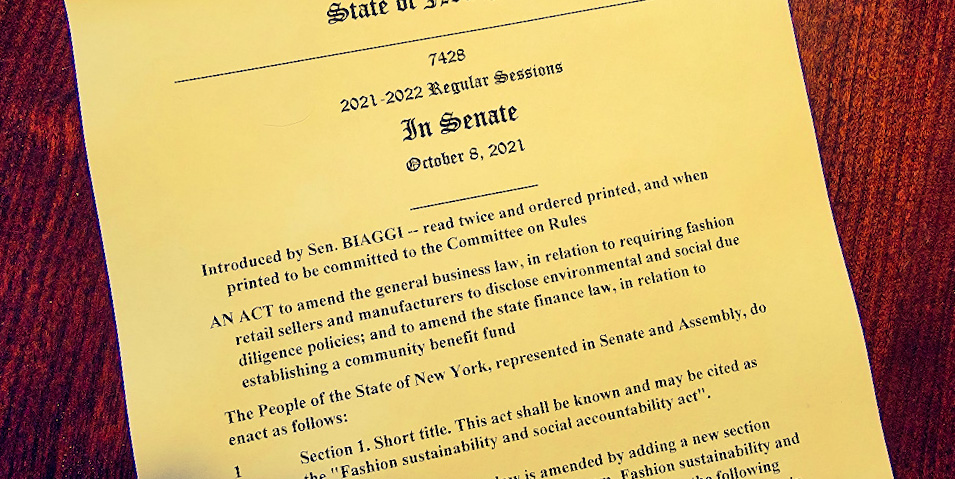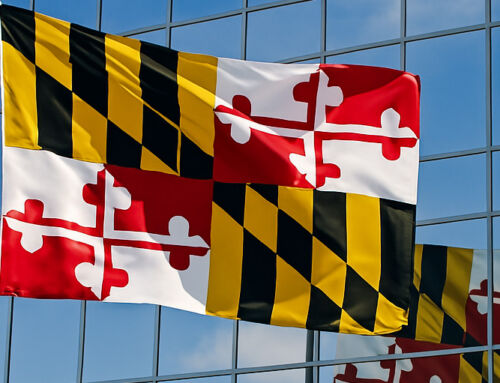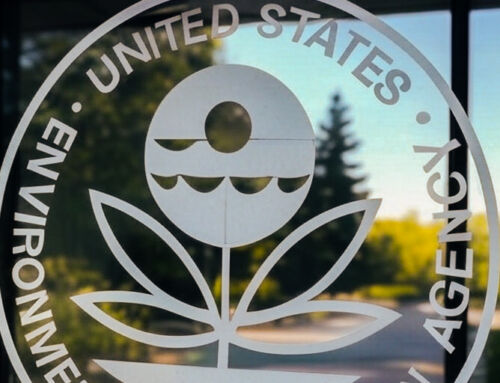View by Topic
Recent Articles
-
Mandatory GHG Disclosures in Maryland Real Estate ContractsSaturday, April 5th, 2025
-
NYC Building Electrification Ruling is Interesting But Not a Game ChangerSaturday, March 29th, 2025
-
Greenpeace Ordered to Pay $667M in Blow to ActivismSaturday, March 22nd, 2025
-
The Most Consequential Day of Environmental Deregulation in American HistorySaturday, March 15th, 2025
-
States Challenge Validity of New York’s Climate Change Superfund ActSaturday, March 8th, 2025
View by Month/Year
“Green Building Law Update” Headlines
Recent Articles & News from
Stuart Kaplow’s blog
at GreenBuildingLawUpdate.com
- Mandatory GHG Disclosures in Maryland Real Estate Contracts April 6, 2025
- NYC Building Electrification Ruling is Interesting But Not a Game Changer March 30, 2025
- Greenpeace Ordered to Pay $667M in Legal Blow to Environmental Activism March 23, 2025
- The Most Consequential Day of Environmental Deregulation in American History March 16, 2025
Subscribe to the Green Building Law Update!
Stuart Kaplow brings his expertise and extensive experience to the table with his unique digital publication, "Green Building Law Update". Subscribers receive regular updates to keep them informed about important issues surrounding Environmental Law, Green Building & Real Estate Law, as well as the emerging demand for Environmental Social Governance (ESG).
Get fresh content through the lense of Stuart Kaplow's cutting-edge expertise, innovative commentary and insider perspective. Don't miss another issue! Subscribe below.

ESG may be Fashionable in New York
Clothing is worn by almost everyone, almost all of the time. Across the globe, the $1.3 Trillion clothing industry employs more than 300 million people.
Over the last 15 years, clothing production worldwide more than doubled and during that period people bought 60% more garments than before but kept them, on average, only half as long. As described by Sofi Thanhauser in her new book, Worn, “by 2017, one garbage truck of clothes (5,787 pounds) was burned or sent to landfills every second.”
Today the clothing industry is one of the planet’s worst polluters producing 20% of global wastewater and emitting as much as 10% of carbon emissions.
Clothing is not only not good for the planet, but not for many of its people and in particular women, who make up more than 65% of the garment industry’s workforce, and often under difficult conditions in garment factories are forced to work long hours and are notoriously exploited and underpaid.
So it is not surprising that a great deal of attention is being paid to a single piece of ESG legislation in one state (.. okay, it is New York) targeting the fashion industry, and the definition of fashion under the bill includes not only wearing apparel but also shoes (.. ouch for Carrie Bradshaw). Originally introduced on October 8, 2021, if enacted the “Fashion Sustainability and Social Accountability Act” will require large fashion retail sellers and manufacturers to disclose ESG policies and more.
We rarely post about pending legislation (.. as most bills introduced go nowhere), but in a year when luxe sportswear is “out” and checkerboard everything on clothing is “in” S7428/ A8352 has significant public policy ramifications.
If enacted, every fashion retail seller and fashion manufacturer doing business in New York and having annual worldwide gross receipts that exceed $100 Million must disclose its environmental and social due diligence policies, processes and outcomes, including significant real or potential adverse environmental and social impacts and disclose targets for prevention and improvement of those adverse impacts.
The required ESG disclosure prescribed by the bill must be posted on the fashion retail seller’s or fashion manufacturer’s website with a clear and easily understood link to the required information.
That disclosure must include, at a minimum, supply chain mapping and disclosure across all tiers of production, from raw material to final production. A minimum of 50% of suppliers by volume across all tiers of production must be mapped.
The required posted ESG report must include, in line with the United Nations guiding principles on business and human rights, the International Labor Organization declaration on fundamental principles and rights at work, specific disclosures for responsible business conduct.
The requirements of the proposed law may be enforced by the attorney general, including bringing civil proceedings for an injunction or monetary damages, or may be criminally charged and fined up to 2% of annual revenues of $450 Million or more. Criminalizing the failure to make correct ESG disclosures creates a new slippery slope in New York’s ever expanding roster of what is a crime. And significantly, taking a page from the Texas abortion law style of enforcement, any citizen may commence a civil action against any person who is alleged to have violated this law.
Those monetary penalties will be deposited in a new community benefit fund established by the bill. The fund will be earmarked for environmental conservation and other environmental benefit projects that directly and verifiably benefit environmental justice communities.
And the fashion industry ills that this bill is attempting to address are growing every year, including being exacerbated by “fast fashion” with consumers buying Billions worth of cheaper clothes, produced with quicker turnaround of new styles that they throw away soon after. On the other hand, there are some small but fast evolving platforms across the U.S. that have the potential to stave off some of the harm, including the use of rental and second hand clothing that cause clothes to be worn longer. Trends like those may do more than this proposed New York law to improve the lives of people impacted by the fashion industry and be positively impactful in matters of ESG.
But this bill does provide a very good checklist for anyone contemplating ESG disclosures.
The Fashion Sustainability and Social Accountability Act will do more harm than good if enacted as proposed and is a noteworthy example of an industry specific ESG legislative act in a single jurisdiction, proposed in response to failure of businesses in that industry to act responsibly in the current Wild West of little or no ESG laws, that may well result in a hodgepodge of laws across the country (.. and the globe), that may well make ESG compliance more challenging and ultimately not be good for people or the planet.
ESG has become such a large component of my law practice that I am now collaborating with a group of daring, innovative and creative attorneys in ESG Legal Solutions, LLC, a boutique ESG driven non-law and consulting firm “powering sustainability, today, for tomorrow’s business.” Nancy Hudes and I are now publishing a blog www.ESGLegalSolutions.com (.. yes, this website will continue). This post originally appeared in that blog. If we can assist you or someone you work with in ESG strategy and solutions, from specific project implementation to fully outsourced managed services, do not hesitate to reach out to me.









